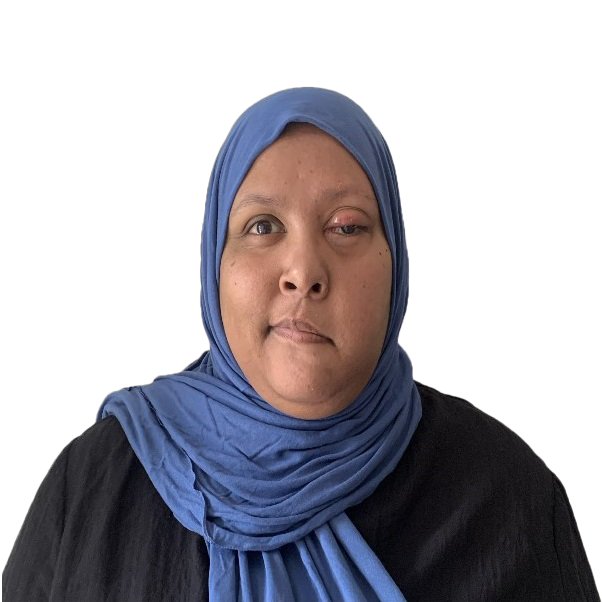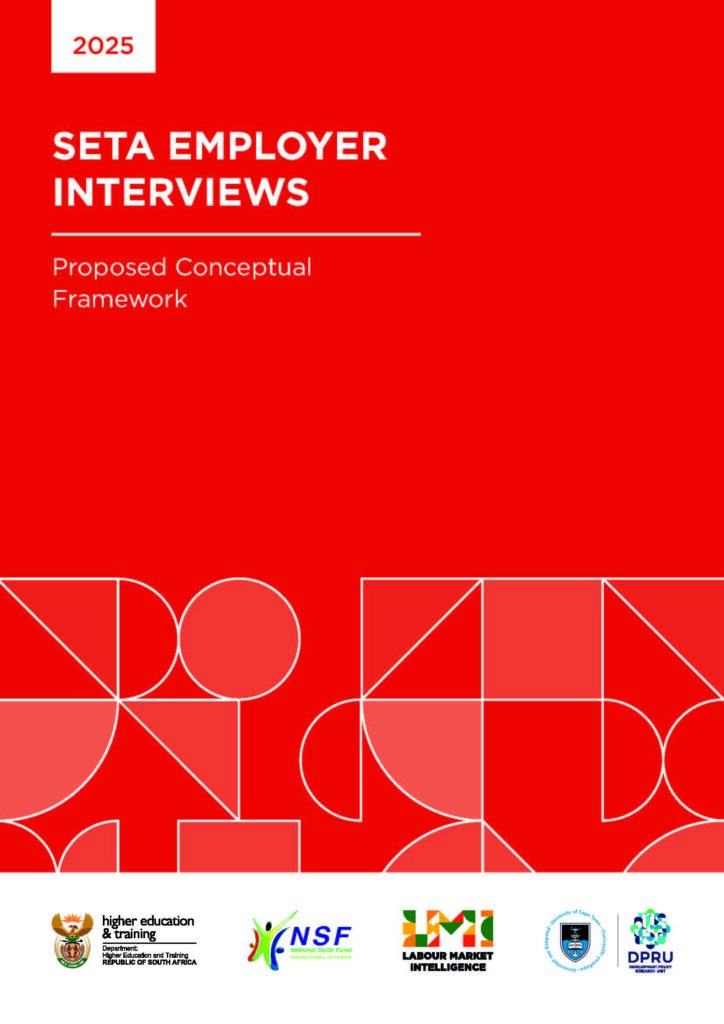About the LMI Research Programme
In 2012, the Minister of Higher Education, Science and Innovation initiated the first phase of the labour market intelligence research programme, the Labour Market Intelligence Partnership (LMIP) led by the Human Sciences Research Council.
In 2019, the second phase of the LMI research programme commenced in partnership with the Development Policy Research Unit (DPRU) at the University of Cape Town (UCT). The LMI is funded through the National Skills Fund (NSF).
LMIP PHASE 2
This second phase of the programme is implemented in partnership with the Development Policy Research Unit (DPRU) at the University of Cape Town (UCT).
This Labour Market Intelligence research programme is a major, multi-year, research programme. The programme aims to integrate skills planning within government strategies and plans in order to produce a capable workforce to achieve an inclusive growth path.
LMI ensures that skills are not a constraint on economic growth, and promotes the use of labour market intelligence for skills provisioning.


One of the sub-outcomes is establishing ‘a credible institutional mechanism for labour market and skills planning’, amongst whose tasks will be the ‘analysis and modelling of labour market skills, using labour market information’.
– MTSF,
(2014-2019)
LMI's Rationale
LMI aims to build a labour market intelligence knowledge platform that incorporates existing and emerging knowledge in the field. The programme will identify knowledge gaps and support research efforts aimed at addressing them.
An explicit goal of NSDS lll includes establishing capacity in the DHET to coordinate research and skills planning, and commissioning research and analysing data, as well as validating and capturing data in an integrated database that is accessible to stakeholders.
In terms of Priority 1 of the MTSF (2019-2024), the Department of Trade, Industry and Competition (DTIC) is mandated to develop the Priority Skills Plan to support and promote economic growth and ensure the creation of jobs in South Africa.
The LMI programme is undertaken to respond to these imperatives and align South Africa’s education and training landscape more closely to the requirements of employers and the structure of the economy.
We aim to build intelligence on the following three things (which interact to varying degrees) to inform policy and planning responses to minimise skills imbalances and mismatches, and support inclusive economic growth for South Africa:
Current demand for skills
Current skills supply of skills
The imbalances between the supply of demand for skills
GOAL
Our goal is to produce new research on a variety of important and interconnected issues that cover labour market analysis, identifying skills shortages and required interventions, examining the relationships between qualifications, occupational classifications and skills requirements at the individual and institutional level, and recognising skills requirements for sustainable livelihoods in communities.
A key priority is contributing to the development of a system of monitoring and reporting on post-school education and training (PSET) institutions and supporting DHET to move to a more responsive PSET system that takes a demand-driven approach to education and training. Another is identifying skills needed across the labour market through the development of the list of occupations in high demand, the critical skills list, and the list of priority occupations.
LMI aims to provide economy-wide evidence about the labour market to SETAs through sector briefs, as well as evidence about skills needs that can be used by all stakeholders (business, labour, government departments and entities), to develop their skills development strategies and plans.
A key priority is also building capacity on labour market intelligence through a variety of training programmes and workshops.

LMI Funding and Governance
The LMI is funded by the National Skills Fund (NSF).
DPRU Project Management Team
The Development Policy Research Unit (DPRU) led by Director, Prof. Haroon Bhorat, coordinates and manages the research programme, and holds key responsibilities for shaping the conceptual direction of the LMI; interacting with potential and actual service providers, the Steering and Advisory Committees, and the Project Leaders of the ‘themes’ within the LMI.
Programme Steering Committee (PSC)
Comprising representatives from the Department of Higher Education and Training (including the NSF, System Monitoring and Labour Market Intelligence) and the DPRU, the PSC has been established to play an oversight role on programme management practices, and provide strategic direction to the research programme process. This includes substantive identification and evaluation of new project ideas, monitoring the delivery of outputs against targets, and general governance.

The programme will partner with various institutions in order to benefit from the existing body of knowledge relating to labour market intelligence in South Africa.
- Ms Mamphokhu Khuluvhe (DHET), Programme Leader
Meet the LMI and DHET Team
The LMI is implemented by the Department of Higher Education and Training (DHET), under Ms Mamphokhu Khuluvhe as the Programme Leader, in collaboration with the Development Policy Research Unit (DPRU) at the University of Cape Town (UCT), under Prof. Haroon Bhorat as the Programme Leader.
Ms. Mamphokhu Khuluvhe
Department of Higher Education and Training (DHET)
Mmaphake Ramasodi
Department of Higher Education and Training (DHET)
Prof. Haroon Bhorat
Director, Development Policy Research Unit (DPRU)
Janine Jantjies
Programme Manager, Development Policy Research Unit (DPRU)
Ferial Davids
Assistant Project Manager, Development Policy Research Unit (DPRU)
Dr. Morné Oosthuizen
Deputy Director, Development Policy Research Unit (DPRU)
Our Research Leaders
-
DNA Economics
Alex Spyrelis
-
DNA Economics
Michele Caparazio
-
DPRU/UCT
Morné Oosthuizen
-
DPRU/UCT
Ben Stanwix
-
Independant
Ebrahim Khalil Hassen
-
Mzabalazo Advisory Services
Richard Jewison
-
Rhodes University
Mike Rogan
-
Second Stage Consulting
Sybil Chabane
-
Stellenbosch University
Servaas Van Der Berg
-
Sustainable Livelihoods Foundation
Andrew Charman
-
Universty of Cape Town
Ariane De Lannoy
-
Universty of Cape Town
Cecil Mlatsheni
-
University of the Western Cape
Derek Yu
-
University of the Witwatersrand
Presha Ramsarup
Latest Publications
Interested in South African Skills Development Issues?
Visit the LMI repository to access programme outputs and products including research and technical reports, working papers and policy briefs, conceptual frameworks, booklets, and infographics and data visualisations.

